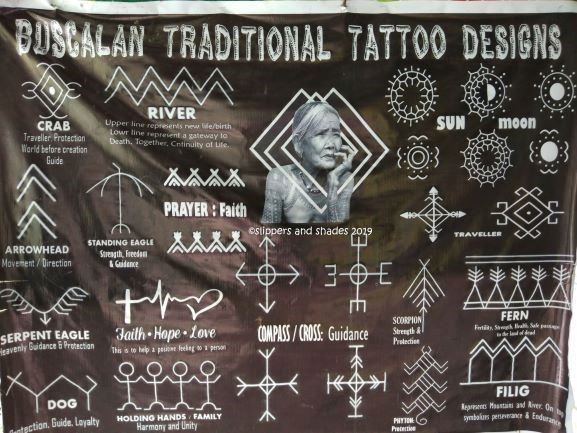About Whang-od
Whang-od Oggay, also known as Maria Oggay, was a legendary and deeply respected mambabatok, the last traditional tattoo artist of the Kalinga people in the Philippines. Born in 1917 in the village of Buscalan, Tinglayan, she lived a remarkable life dedicated to preserving her cultural heritage through the ancient art of batok.
Whang-od's journey as a mambabatok began at a young age. Traditionally, the art was passed down from father to son, but Whang-od's exceptional talent and dedication caught the eye of her own father, a renowned mambabatok himself. He defied tradition and began training her in the intricate techniques and symbolic language of batok.
For over eight decades, Whang-od meticulously applied intricate geometric designs onto the skin of individuals from her community and beyond. Her tattoos served not just as adornments, but as symbols of bravery, social status, and identity within the Kalinga culture.
Whang-od's unwavering commitment to her practice and her vibrant personality earned her international recognition. From her humble village in the Cordillera mountains, she became a symbol of cultural resilience and a testament to the enduring power of tradition.






